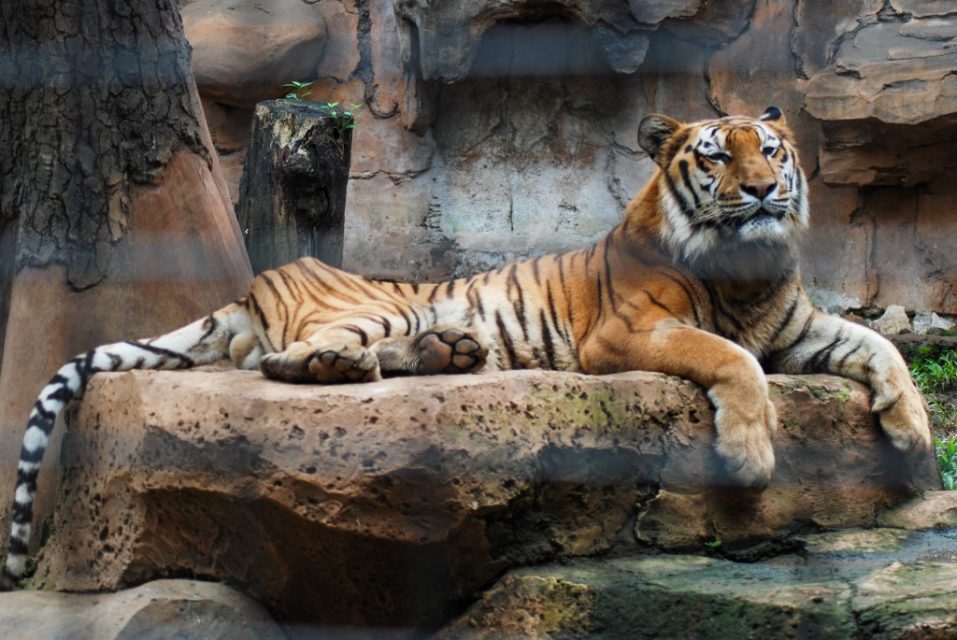
BANDUNG, Indonesia (AFP) — Thousands of animals, including endangered Sumatran tigers and Bornean orangutans, are facing starvation at Indonesia’s zoos as the global pandemic pushes shuttered facilities toward collapse, officials say.
Some 60 cash-strapped animal parks — home to roughly 70,000 creatures — across the Southeast Asian archipelago have been closed since mid-March and most say they have only enough food until the middle of May.
“Most zoos relied on ticket sales so when they closed everything collapsed,” said Indonesian Zoo Association spokesman Sulhan Syafi’i.
“We’ve had to rely on creativity to survive,” he added.
This month, a German zoo director warned some animals might have to be sacrificed to feed others, and Indonesia’s zoo association acknowledged a similar “worst-case scenario”.
“If a few more months pass and we don’t get any aid from the government or other international organisations, then with a heavy heart we’ll have to feed herbivores…to the carnivores,” Syafi’i said.
Zoo keepers have taken up the task of collecting grass and plants to boost food stocks for giraffes and other herbivores.
Red-meat portions for tigers and other carnivores have been cut by supplementing their feed with poultry, he said.
And staff — already hit by slashed wages and working hours — have even dipped into their own personal chicken stocks.
“That’s enough to extend the lifeline,” Syafi’i said.

Still, it won’t replace revenue generated by 50 million annual visitors at Indonesia’s zoos, and some are eyeing drastic measures as they rely on public donations and appeal to the national government for emergency aid.
“We can put down wildlife that is not endemic” to Indonesia, Syafi’i said.
“But for wildlife endemic to Indonesia, like Sumatran tigers, we must do whatever it takes to save them. It’s sad, but at this point we need to start thinking about priorities.”
In Thailand, some animal parks are relying on private donations to keep the creatures fed.
“Every private zoo is affected,” said Nantakorn Phatnamrob, owner of now-closed Chang Siam Park in Pattaya, where tourists used to ride elephants, snap selfies with tiger cubs, and see snapping crocodiles.
In neighbouring Malaysia, the zoo association has appealed for funds to try and avoid drastic choices about which animals live or die.
“If the (shutdown) continues to June or July, there will be some problems,” said Kevin Lazarus, chairman of the Malaysian Association of Zoological parks and Aquaria.
“But we’re not at that point yet. We’re trying to mitigate…so we don’t come to that kind of scenario.”
© Agence France-Presse








